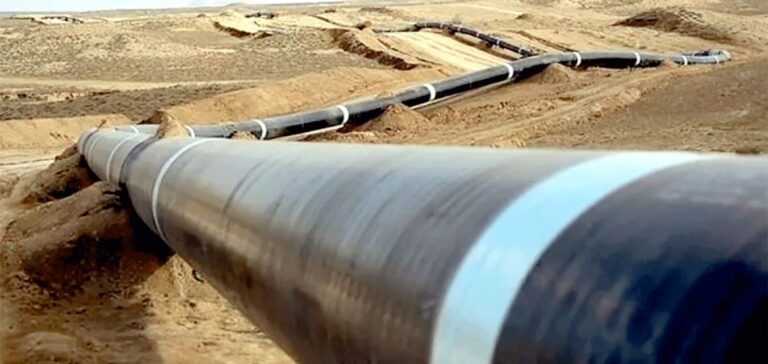The Trans-Saharan Gas Pipeline (TSGP) project, designed to transport Nigerian gas to Europe through Niger and Algeria, has reached a new milestone. In Algiers, the energy ministers of the three countries formalized several agreements to speed up its implementation.
Strategic Agreements to Accelerate the Project
Three documents were signed: an agreement to update the feasibility study, a compensation contract, and a non-disclosure agreement (NDA) between the involved energy companies. The goal is to assess the necessary means to complete this project within a reasonable timeframe and at a competitive cost, according to Algeria’s Minister of Energy, Mohamed Arkab.
Updating the feasibility study will help better define the required investments and optimize the infrastructure to meet international market demands. Relaunched amid rising global gas demand, this project represents an opportunity to diversify Europe’s energy supply.
An Energy Corridor Between Africa and Europe
The 4,000-kilometer-long TSGP will transport Nigerian gas to Algeria via Niger. Once in Algeria, the gas can be exported to the European Union through the Transmed pipeline, which connects Algeria to Italy via Tunisia, or in the form of liquefied natural gas (LNG) via tankers.
Initially estimated at $10 billion when launched in 2009, the project could play a major role in securing Europe’s energy supply. It also aims to improve gas access for Sahel countries, contributing to regional energy development.
A Project Revived by Geopolitical Context
Since signing a memorandum of understanding in July 2022, Algiers, Abuja, and Niamey have been working to accelerate the project’s development in response to soaring gas prices and geopolitical tensions exacerbated by Russia’s invasion of Ukraine.
In this context, the TSGP serves as a strategic alternative for Europe, which seeks to diversify its gas supply sources. For the involved countries, it also presents an economic lever, with potential benefits in terms of investment and energy infrastructure.






















